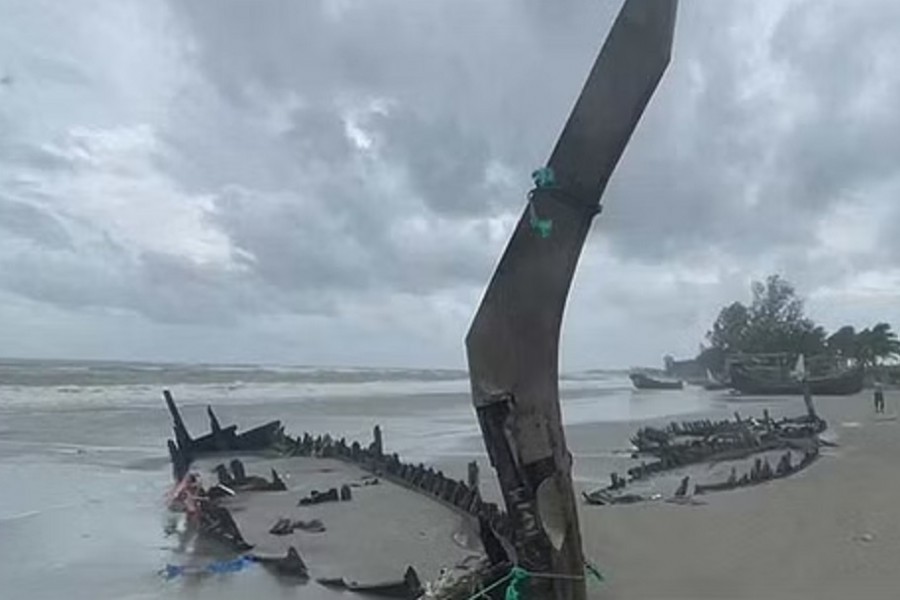Country's leading climate experts suggested fixing the exact definition of loss and damage and making a proper calculation to claim a fund from the global parties for the climate-induced loss and damage, ahead of the COP 27.
They at a webinar on Thursday lamented that the government is yet to have categorical data of the climate effects across the country and clear definition of climate financing and preparation to deal with natural disasters.
"We have to first determine the definition of loss and damage and make a proper calculation to claim a global fund to repair the damage inflicted by climate change. There are a number of relevant issues, including displacement, climate refugee and migration," said Prof Ainun Nishat of BRAC University.
"There is a lack of understanding of climate disaster and subsequent preparation at the government level. We witnessed the recent cyclone hit the country badly," he added.
He suggested raising height of the coastal embankments, concentrating more on innovation and sustainable technology rather than depending on cheap technology.
Echoing the same, M Asaduzzaman, research director of Bangladesh Development Research Centre, said "If we fail to provide categorical information about loss and damage, we will not be able to press our demand in events like COP."
The webinar was organised by the Society of Experts on Environment Development (SEED) on the occasion of COP-27 Conference 2022.
The main objective of the event was to lay focus on what to expect from the conference and its global importance.
Md Ziaul Haque, director of the Environment Department, presented the keynote paper.
He said the term 'climate finance' should be defined clearly for transparent accounting, and monitoring; and to ensure the new and additional nature of climate finance.
It is a matter of deep regret that nothing has been done though the COP 26 requested to prepare a report in 2022 on progress towards achieving the goal of jointly mobilising US$100 billion find per year to address the needs of developing countries, reads the keynote.
Adaptation financing is less prioritised compared to mitigation financing in both GCF and other funding windows, it states.
Adaptation financing should be prioritised for achieving climate resilience in climate-vulnerable developing countries, says the keynote.
Saber Hossain Chowdhury, president of the Parliamentary Standing Committee on the Ministry of Environment, Forest and Climate Change was the chief guest.
Dr Qazi Kholiquzzaman, chief adviser of the SEED and the Chairman of PKSF, was special guest.
Abul Kalam Azad, president of SEED and special envoy of CVF to Bangladesh Presidency, and former Principal Secretary and Chief Coordinator (SDG) of the Prime Minister's Office, presided over the event.
Prof Md Nazmus Sadath of Khulna University and Maliha Muzammil, climate finance expert of UNDP Bangladesh, participated as speakers.
Chowdhury said, "The promises we received in the previous conferences have not been properly implemented and there is no guarantee that our demands will be fulfilled this year as well."
"We will place our demands, but we should not stop development in the hope that help will come from there," he added.
The speakers suggest that displacement of people from the coastal region needs to get special attention during urban planning.


